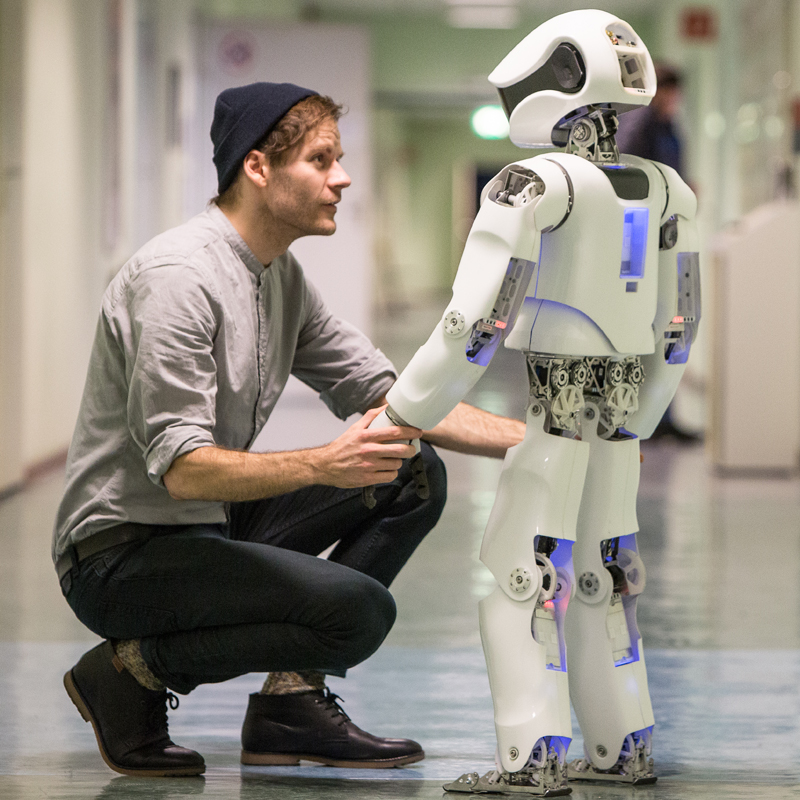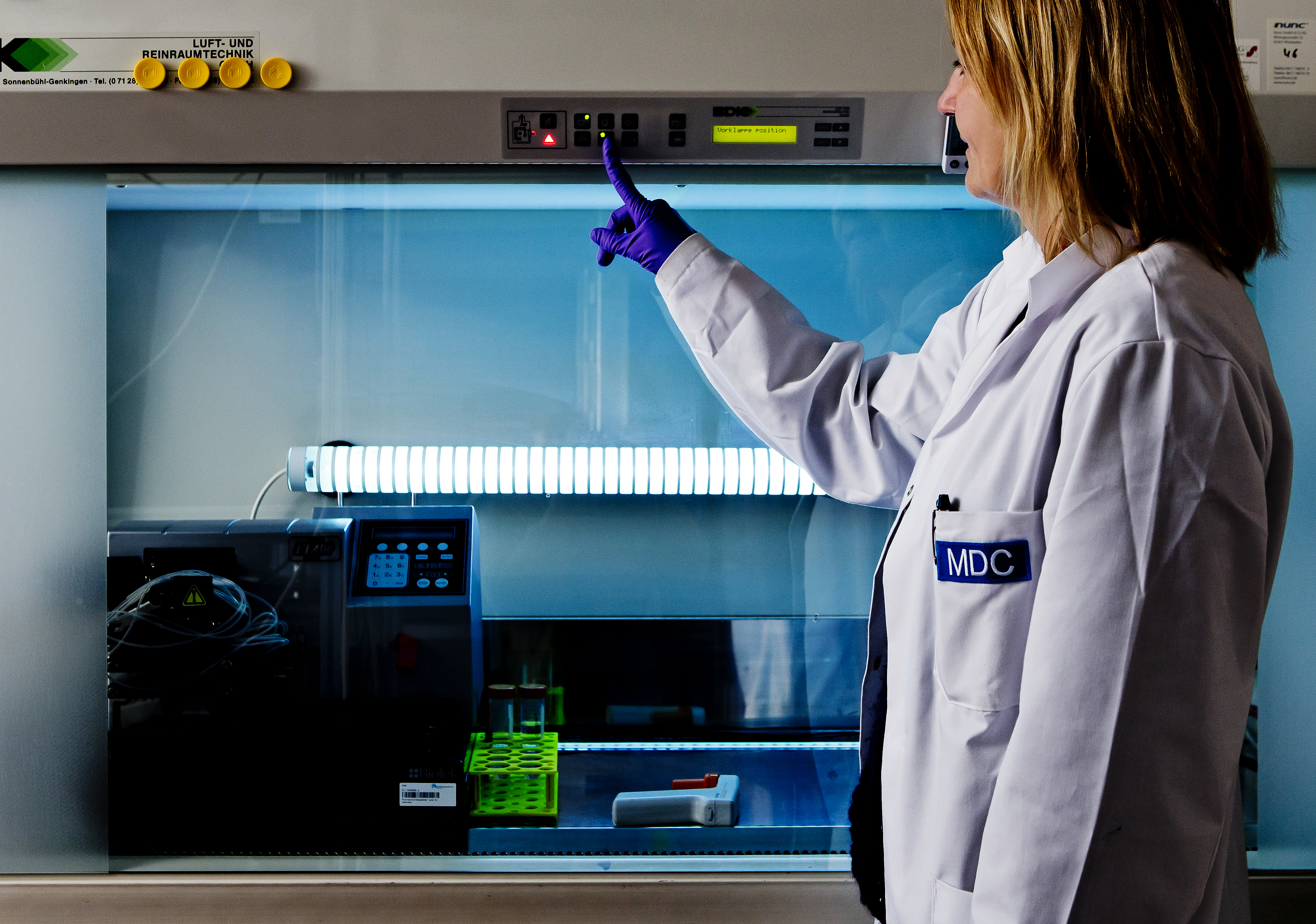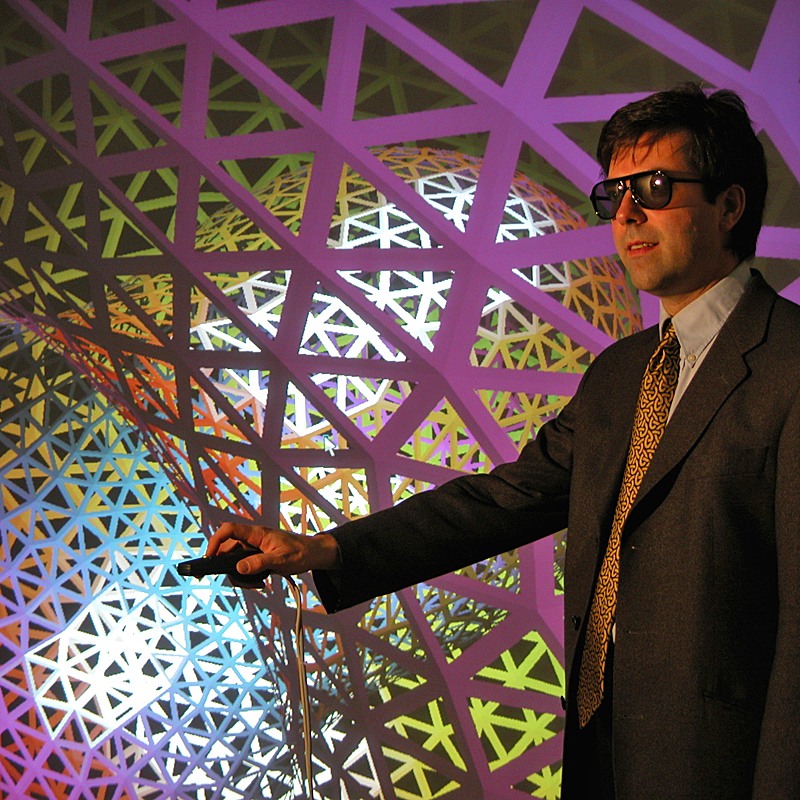The rich expertise of Berlin's scientific landscape
Berlin is a unique center for science and research: The city’s universities offer more than 700 different degree programs, and around 200,400 students are enrolled at Berlin’s higher education institutions. Around 20 percent of them come from abroad to experience the capital’s open and collaborative research environment. Promising partnerships between universities, non-university research institutions, and technology centers make Berlin a hotspot for both science and business.
Future-oriented concepts
Excellence Alliance: The city fosters interdisciplinary collaboration through excellence clusters, graduate schools, and special research areas. The Berlin University Alliance (BUA) – a partnership of TU Berlin, FU Berlin, HU Berlin, and Charité – has been funded since 2019 under Germany’s Excellence Strategy. The funding period is seven years and funds totalling around 335 million Euro were raised.
Excellence Clusters:
Matters of Activity: Image Space Material
SCIoI – Science of Intelligence
Unifying Systems in Catalysis (UniSysCat)
New Excellence Clusters 2026:
The city is also a hotspot for healthcare innovation, with strong research in Big Data, Digital Health, and Telemedicine, closely linked to its many medical institution.
Collaboration is key to the capital's success
The network between Berlin's various scientific institutions is strengthened by initiatives such as the IFAF Institut für Angewandte Forschung Berlin (Institute for Applied Research), which brings together the research expertise of the city’s four public universities of applied sciences.
The 35 professorships in the field of digital transformation at the Einstein Center Digital Future (ECDF) also demonstrate how Berlin continues to solidify its position as Europe’s science capital.
Research focus in Berlin: Germany's Center for Digitization

Digitization is being researched and driven forward in the capital. Key hubs of Berlin's Digitization Strategy include the following institutions:
- BIFOLD – The Berlin Institute for the Foundations of Learning and Data – As a flagship of cutting-edge research, BIFOLD brings together Berlin’s expertise in artificial intelligence. It was established in early 2020 through the merger of the Berlin Big Data Center (BBDC) and the Berlin Center for Machine Learning (BZML).
- Einstein Center Digital Future (ECDF) – An inter-university and interdisciplinary alliance dedicated to promoting and researching the digital transformation of society. The ECDF is a public-private partnership (PPP) involving more than 30 companies and organizations, all four Berlin universities, Charité – Universitätsmedizin Berlin, and over ten research institutes from Berlin’s scientific community. The ECDF began its work in 2017. In 2023, the ECDF entered its second funding phase. Focus research areas are: Transforming Communities, Integrated Health and Sustainable Cities.
- Weizenbaum Institut – This is a joint project between Berlin and Brandenburg, funded by the Federal Ministry of Education and Research (BMBF). The consortium includes all four Berlin universities (including the Berlin University of the Arts – UdK), the University of Potsdam, the Fraunhofer Institute for Open Communication Systems (FOKUS), and the Berlin Social Science Center (WZB).
- Fraunhofer High Performance Center “Digital Transformation” – In collaboration with the four Berlin-based Fraunhofer Institutes – FOKUS, HHI, IPK, and IZM – this center explores the city of the future as well as the digitalization of industry and production.
Medical research in Berlin - A dynamic healthcare hub

Berlin is home to Charité (Germany’s largest university hospital), the Max Delbrück Center for Molecular Medicine (MDC), and the Berlin Institute of Health (BIH).
- Charité – Universitätsmedizin Berlin – With over 21,500 employees—including 5,242 researchers, physicians, and 307 professors—Charité is one of Europe’s largest university hospitals, offering more than 3,200 beds. A total of 9,485 students are enrolled at Charité. It serves as the central hub for medical research in Berlin. (Data as of May 2023)
- Max Delbrück Center for Molecular Medicine – The Berlin Institute of Health is part of Charité. Its research focuses on translational medicine and precision medicine.
- Berlin Institute of Health (BIH) – The MDC is a biomedical research center and a member of the Helmholtz Association. Founded in 1992, it is dedicated to advancing medical progress, particularly in areas such as cancer research. The center is named after Nobel Prize laureate Max Delbrück, one of the pioneers of modern interdisciplinary genetics and molecular biology.
Berlin – A globally leading location in the healthcare industry
HealthCapital: Within the healthcare industry cluster, Berlin is promoted as one of the leading locations for healthcare services and life sciences. The German capital region of Berlin-Brandenburg holds a top international position in the healthcare industry, medical care, and life sciences.
Global market leaders, renowned scientists, top-tier clinics, innovative startups, and specialized professionals from around the world work together here every day to achieve excellence for both regional and global healthcare markets.
Big Data, Digital Health, and Telemedicine are key research areas for the region’s innovative pharmaceutical, medtech, and biotech companies. Closely connected with the city’s many medical institutions, they make Berlin an attractive hub for healthcare innovation.
Humanities and Social Sciences - Berlin attracts industry experts from around the world

In Berlin, interdisciplinary expertise meets a wide range of research fields in the humanities and social sciences – from antiquity to today’s global transformation processes.
- Leibniz-Zentrum Allgemeine Sprachwissenschaft (ZAS) – A unique research institution in Germany dedicated to the structure, acquisition, and processing of human language.
- Zentrum für Literatur- und Kulturforschung (ZfL) – Literature in interdisciplinary and intercultural discourse: This independent institute explores the history of theory, world literature, and knowledge of life.
- Berlin Social Science Center (WZB) – An institute that advances basic research on the opportunities for innovation in modern societies through international comparative studies.
- Berlin Brandenburg Academy of Sciences and Humanities (BBAW) – The BBAW is a cross-disciplinary and cross-regional association of outstanding scholars with a tradition spanning over 300 years. Its history has been shaped by 80 Nobel Prize laureates.
Future-oriented research center - Mathematical sciences in Berlin

The Einstein Center for Mathematics Berlin, opened in 2014, is a joint project of three mathematical research centers in Berlin:
- DFG Matheon Research Center – Application-oriented mathematics research for key technologies, e.g. in biotechnology, micro- and optoelectronics, as well as information and communication technologies.
- Berlin Mathematical School (BMS) – Graduate School of the Berlin Universities with research areas such as stochastics and financial mathematics.
- German Centre for Mathematics Teacher Education (DZLM) – Center for teacher training in mathematics: cross-national, practical, and research-based.